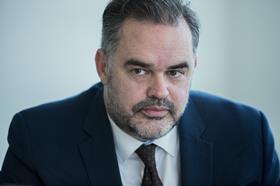- DHSC announced it would consult on pension changes earlier this week
- But says there is not enough evidence taxes are affecting retention of managers
- Managers in Partnership “strongly opposed” to DHSC plans
The government’s impending consultation on a fix for the NHS pension crisis will not extend to managers because there is not enough evidence they are leaving because of tax rules, the Department of Health and Social Care has said.
Earlier this week, the DHSC announced it would consult on plans to give senior clinicians more flexibility over the rate their pension builds to stop them being hit with large tax bills. Concerns have been raised the current tax regime is discouraging doctors from taking on extra work or influencing them to leave the health service altogether.
However, the DHSC has now said that, while it acknowledges senior managers may also have pay levels which attract sizeable tax bills for their pensions, the evidence is less clear this is creating productivity issues or affecting patient care.
Since 2016, the annual allowance taper has restricted the amount of tax relief available to those with a threshold income over £110,000, reducing it from £40,000 to £10,000. This has resulted in large tax bills for some higher earners.
The DHSC is proposing a 50:50 pension option, which would allow clinicians to halve their pensions contributions in exchange for halving the rate of pension growth
The proposal will be consulted on for 12 weeks from the end of this month. The DHSC said plans would give senior clinicians flexibility over the rate their pension builds and allow them to “freely take on additional shifts to reduce waiting lists”.
The department confirmed to HSJ the proposals were being considered for all senior clinicians who deliver frontline care – including dentists, nurses and scientists – and who can demonstrate a reasonable expectation of incurring a pension tax charge.
A DHSC spokeswoman said: “The government is consulting on targeted proposals to make NHS pensions more flexible for senior clinicians, in response to evidence that shows this issue is having a direct impact on retention, frontline service delivery and patient care.”
However, HSJ has previously reported managers, including some of the most senior directors in the NHS, have opted out of the NHS pension scheme in recent years.
Meanwhile, NHS Employers warned in its submission to the NHS pay review body last year that the pension scheme could be destabilised following an exodus of high earners. It called for the Treasury to review the impact of pensions tax rules.
A Freedom of Information investigation by HSJ also found that a quarter of a million people opted out of the NHS pension scheme in 2017-18. Data revealed there were also a high number of opt-outs in the 26-35 age group.
“Wrong, unfair and undermines the new positive focus”
Managers in Partnership chief executive Jon Restell said the union “strongly opposed” what the DHSC is planning and said pensions flexibility must be available to all staff.
“Excluding senior managers, support staff and junior clinical staff is wrong, unfair and undermines the new positive focus on the whole NHS workforce,” Mr Restell said. “We will press hard for the equalities impact assessment of any proposals.”
He continued: “Where is the DHSC evidence that pensions tax doesn’t affect recruitment and retention of managers? The board vacancy rate in the trusts most in need of permanent leaders is well-documented and these recruitment problems are a major threat to patient care.”
Mr Restell echoed the concerns raised by NHS Employers regarding the impact of high earners opting out on the stability of the pension scheme.
However, he was also critical of the government’s proposed fixes to the pensions crisis. “The 50:50 option touted by the department is unlikely to do the job for anyone in any case. I doubt senior doctors will see it as the answer to annual allowance charges,” he said.
Meanwhile, a chief executive who spoke with HSJ on the condition of anonymity said: “The key issue that needs addressing is the tapered annual allowance. The 50 per cent of salary that is opted out of the pension scheme will still lead to a reduced annual allowance and a significant tax burden on the employee.”
When the consultation was first announced, Tony Goldstone, a consultant radiologist at Hull and East Yorkshire Hospitals, said: “50:50 is a paycut, and it is bound to fail. It is completely unsuitable for those caught by annual allowance issues…
“I am worried that [the government has] not grasped the scale of this problem, and has not thought out properly the consequences of this so-called solution. It is of grave concern that patients will continue to suffer as NHS capacity is already severely overstretched.”
Commenting on the exclusion of managers from the consultation, Danny Mortimer, chief executive of NHS Employers, said allowing greater flexibility in the pension scheme for consultants and GPs was a “positive response to the concerns”.
“At the same time, we do believe introducing more pension flexibilities to help all members of the scheme manage their pension growth would support retention across the workforce,” Mr Mortimer stressed.
Source
DHSC
Source Date
June 2019



























20 Readers' comments